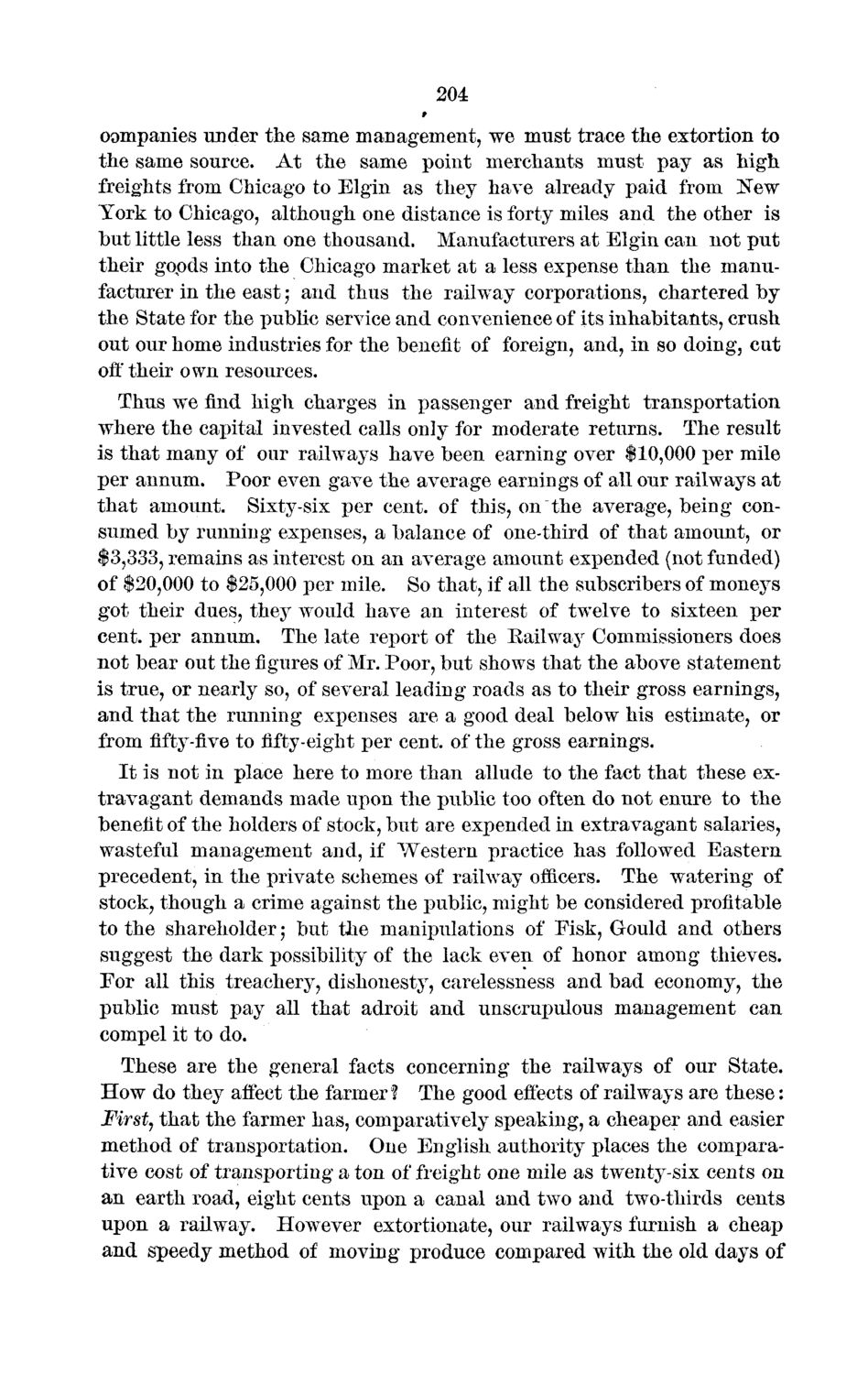| |
| |
Caption: Board of Trustees Minutes - 1872
This is a reduced-resolution page image for fast online browsing.

EXTRACTED TEXT FROM PAGE:
204 oompanies under the same management, we must trace the extortion to the same source. At the same point merchants must pay as high freights from Chicago to Elgin as they have already paid from Kew York to Chicago, although one distance is forty miles and the other is but little less than one thousand. Manufacturers at Elgin can not put their gopds into the Chicago market at a less expense than the manufacturer in the east $ and thus the railway corporations, chartered by the State for the public service and convenience of its inhabitants, crush out our home industries for the benefit of foreign, and, in so doing, cut oft' their own resources. Thus we find high charges in passenger and freight transportation where the capital invested calls only for moderate returns. The result is that many of our railways have been earning over $10,000 per mile per annum. Poor even gave the average earnings of all onr railways at that amount. Sixty-six j>er cent, of this, on the average, being consumed by running expenses, a balance of one-third of that amount, or $3,333, remains as interest on an average amount expended (not funded) of $20,000 to $25,000 per mile. So that, if all the subscribers of moneys got their dues, they would have an interest of twelve to sixteen per cent, per annum. The late report of the Railway Commissioners does not bear out the figures of Mr. Poor, but shows that the above statement is true, or nearly so, of several leading roads as to their gross earnings, and that the running expenses are a good deal below his estimate, or from fifty-five to fifty-eight per cent, of the gross earnings. It is not in place here to more than allude to the fact that these extravagant demands made upon the public too often do not enure to the benefit of the holders of stock, but are expended in extravagant salaries, wasteful management and, if Western practice has followed Eastern precedent, in the private schemes of railway officers. The watering of stock, though a crime against the public, might be considered profitable to the shareholder; but the manipulations of Fisk, Gould and others suggest the dark possibility of the lack even of honor among thieves. For all this treachery, dishonesty, carelessness and bad economy, the public must pay all that adroit and unscrupulous management can compel it to do. These are the general facts concerning the railways of our State. How do they affect the farmer? The good effects of railways are these: First, that the farmer has, comparatively speaking, a cheaper and easier method of transportation. One English authority places the comparative cost of transporting a ton of freight one mile as twenty-six cents on an earth road, eight cents upon a canal and two and two-thirds cents upon a railway. However extortionate, our railways furnish a cheap and speedy method of moving produce compared with the old days of
| |